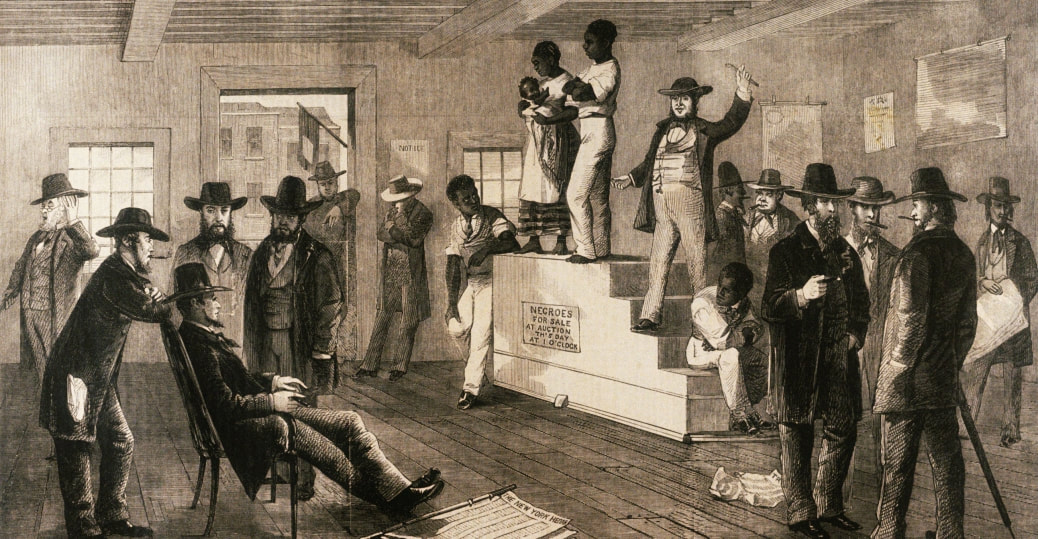THE POLITICS OF CRUELTY, THE THEOLOGY OF INDIFFERENCE AND THE INDECENT SOCIETY
BY RAMON DURAN
|
In recent months, the Congress passed and the president signed into law massive tax break legislation that benefits primarily those in the country who are already of substantial means, including, I would imagine, most of those who represent us in Congress and most certainly the occupant of the White House. I would have thought it would have been enough to have grabbed all the money, and “run like a thief,” as the Irish say. But it isn’t.
The good men and women of the South who were slave owners considered themselves to be fine and upstanding Christian men and women. But they had to reconcile that illusion with the fact that they owned people; and that they could dispose of those people according to their whim, which included rape, savage beatings and murder. In order to maintain that illusion, they had to believe that their slaves were not in fact fully human, or perhaps not human at all; they were merely property. With this attitude, I am sure, with a clear conscience, they would gather Sundays in their churches and sing the glory of God (this insight is from an Express News editorial that I have not been able to track down). I am sure that it must be so with the good Christian (et al.) men and women who passed this and similar legislation and then sign them into law, whether in Washington or at the state legislature. I say this because of the disturbing editorials, news articles and opinion columns that have begun to appear recently. As Paul Krugman has observed (“Let Them Eat Trump Steaks”), now that Congress has grabbed all the money for themselves and their friends, they turn their attention to making it even more difficult for those on SNAP (there are many children among them, as well as the elderly and the disabled) to continue to receive the meagre supplement they receive by adding heavier burdens upon them. And in the spirit of nonpartisanship, let us not forget Bill Clinton’s welfare reform legislation, legislation that originally included money for job training, child care, housing assistance and transportation, which was stripped from the final bill and signed into law by Clinton notwithstanding (Didn’t Jesus comment on those who load unbearable burdens on others but refuse to lift a finger to help them?). And then there are the disturbing news articles and editorials about the practice of punishing immigrant mothers at the border by taking their children away from them (echoes of Pharaoh and Herod!). These mothers and their children must be the “undeserving poor,” or just plain animals, as the president has referred to those who come to our southern border seeking asylum and a descent future for their children. Most certainly, Trump can claim that the reference to “animals” is just to gang members, but it is not a difficult leap to understand with clarity that is how he views all unauthorized immigrants, otherwise, why the brutality in punishing them. To be clear, those who come to the border and surrender themselves seeking asylum have broken no law, yet children are separated from parents nonetheless. Greed has become cruelty to maintain the illusion of moral purity, and thus the politics of cruelty (indeed: ‘sin lurks at the door, and its desire is for you,” Gen 4,7). Why are the weak, those lacking financial resources, the unorganized, the isolated, the so called marginalized, sought out to be treated in this manner? For that very reason: they are easy targets; no one is willing to stand with them (Was it the prophet Amos who asks the Lord, “Why do the powerful oppress the weak?” and the Lord replies, “Because they can). Of course, there are any number of ministries sponsored by churches and congregations across the land that seek to ameliorate the situation of the marginalized, those who have have been cast to one side as not worthy of attention (except to justify greed and avarice): distribution of food, clothes, shelter, limited monetary contributions to cover rent or utility costs, etc. But it only makes being “undeserving” less fierce (was it not Sandberg who said in “The People Yes:” it’s bad to be poor, but to be poor and undeserving is fierce), it does nothing to ameliorate the humiliation. To live with dignity requires that people have meaningful employment, that they can own property (the American dream: home ownership), that they can contribute to the formation and progress of society, that their children have a future. The theology of indifference is indifference to how people are humiliated: a theology that does not stand with, is not covenanted with the humiliated. To be covenanted with the abused and oppressed requires more that ameliorating need; it requires opportunity to live a dignified life. The theology of indifference makes the indecent society possible, the indecent society identified by Avishai Margalit as that society that allows its people to be humiliated. |
Churches are filled with people who have been formed not by their religious traditions, but by the traditions of the indecent society, a society that teaches us that if other people are humiliated, it’s not our business. A society that is individualistic and materialistic with a well-developed praxis founded on acquisitiveness that teaches people greed. It can be said of these good people that “a wind has wrapped them in its wings,” (Hosea 4,19). The very institutions that we ought to expect to confront and condemn the greed, the cruelty and the indifference that humiliates people, remain strangely silent. The political and social arrangements that promote greed have a well-defined and promulgated praxis that inculcates values that perpetuate those insritutions. And they have permeated the members of religious institutions as well as every other aspect of our loves, both public and private.
“And the light shines in the darkness, and the darkness did not overcome it” (John 1,5). The light that shines in the darkness and that cannot be overcome by it is covenant. Our churches, synagogues, mosques are communities of covenant (as I understand their traditions) and those with whom these traditions call them to be covenanted are the very same economically marginalized and socially ostracized people. The implications are evident. To be able to respond to the crisis that communities of covenant face, we must understand what is meant by praxis. It is what compliments what the traditions of communities of covenant teach: how we make it happen, and how those who practice it become transformed by that practice into a people of covenant (the emphasis here is not what individuals do, but what communities do: these traditions call us not just to be good people, they call us to be a good people). Hannah Arendt called these two the vita contemplative and the vita activa. Both are necessary, otherwise we become hypocrites (theory with no practice is futile) or activists (practice with no theory is fatal). The 1979 World Synod of Catholic Bishops stated that “it appears to us that action on behalf of justice is fully constitutive of preaching the Gospel.” Lest we become cynical, there are many religious institutions that have stepped up to the challenge of what it means to be a covenanted community, both in theory and in practice. These are those religious institutions (and if they are not there yet, my fervent hope is that they will soon become legion) that have incorporated (incarnated?) action on behalf of justice (for those who have been denied justice, understood as those who are humiliated by the politics of cruelty) as constitutive of preaching the good news (it is good news for the humiliated in that they are offered the opportunity for a dignified life, and it is good news for the cruel, the indifferent and the indecent: they too, can aspire to authentic humanity). When congregations take seriously their call to be covenanted communities, understanding that this call/mission is to be in covenant with those who are denigrated and abused by artificially manipulated social and political arrangements; when these communities stand in solidarity with (not for) the marginalized, (borrowing from and modifying slightly the sense of Psalm 91), then, “upon lion and cobra shall you tread (the “you” are the maligned), you will trample young lion and sea monster” (“lion,” etc. understood as the political policies enacted for the express purpose of denigrating them), “because God has commanded his messengers (the covenanted communities) to guard over you in all your paths; they will lift you up on their palms lest you dash your foot against a stone.” These communities, communities that gather in those cast aside as without worth, communities that confront, because they have joined to their stated mission a transformative praxis, can transform the politics of cruelty into a politics of compassion and solidarity; the theology of indifference to a theology of covenant; and the indecent society to a society of opportunity, opportunity for each of its members to participate in the wealth of the community, to participate in the decisions that form their society, to a society that does not humiliate people but one that allows everyone the opportunity to live dignified lives. |



